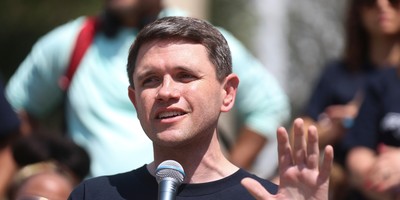Kyrsten Sinema, the former Arizona Democratic senator (now Independent), is officially dipping her toe (honestly, more like her whole foot) into psychedelic waters. And not with the usual suspects like psilocybin or LSD. Nope. She went straight for Ibogaine.
If you’re not familiar, Ibogaine is a psychoactive alkaloid from the root bark of the Tabernanthe iboga shrub, used for centuries in Bwiti spiritual practices throughout Gabon and Cameroon. It’s not your typical “trip.” Pharmacologically, it’s in its own league.
Think of Ibogaine as the closest thing we’ve found to a neurological reset button:
NMDA receptor antagonist — reduces withdrawal and cravings
Kappa-opioid receptor agonist — triggers deep psychological work
Serotonin + dopamine modulation — recalibrates mood and reward cycles
Boosts GDNF — supports dopamine neuron repair
Restores opioid receptor function in people with long-term dependence
This multi-pathway action is exactly why Ibogaine stands out. It doesn’t just mask addiction, it interrupts it. And that has caught the attention of some unexpected players.
Enter Make America Healthy Again.
In a new interview, Sinema said, “We are in this magical, unique time,” referring to Trump’s health department, led by Secretary Robert F. Kennedy Jr., and the Make America Healthy Again (MAHA) movement. Sinema, now a senior adviser at Hogan Lovells, has taken up the psychedelic-medicine cause pro bono. And whether you agree with her politics or not, she’s not wrong about the timing. Kennedy has been openly bullish on psychedelic therapeutics, saying, “This line of therapeutics has tremendous advantage if given in a clinical setting, and we are working very hard to make sure that happens within 12 months.”
Recommended
Twelve months. That is lightning-speed in government years.
Recently, Sinema delivered remarks to a crowd of close to 200 at an Americans for Ibogaine conference, a group co-founded by former Texas Governor Rick Perry, who has made psychedelic advocacy his post-government mission.
When you have Sinema, Perry, Kennedy, and Trump’s HHS aligned on anything, you pay attention. That is not a coalition that forms by accident.
And it signals something big: Serious, bipartisan momentum behind psychedelic medicine, especially for addiction treatment.
With support stacking across ideological lines, the Food and Drug Administration (FDA) could realistically push through approvals during Trump’s second term. This administration is not building a government that tiptoes; it’s building one that executes. From MAGA to MAHA, the appointees this time around are operators. Whether people like it or not, they are here to move FAST and get stuff done.
And Ibogaine might just become one of those rare political unicorns: A disruptive idea that actually delivers relief to millions of Americans battling addiction.
If Sinema is right, and if Kennedy keeps the pressure on, we are looking at a moment where “healthcare disruption” isn’t a talking point, but an actual policy window.
And here’s the uncomfortable question this raises: Are we finally ready to prioritize outcomes over optics?
Because if we are, psychedelics might not just change medicine, they might change the country.
Editor’s Note: Do you enjoy Townhall’s conservative reporting that takes on the radical left and woke media? Support our work so that we can continue to bring you the truth.
Join Townhall VIP and use the promo code FIGHT to get 60% off your VIP membership!

























Join the conversation as a VIP Member